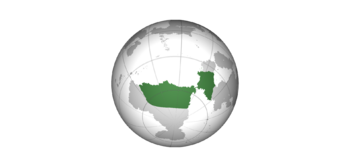Komrep Inglaterra
Communist Republic of Inglaterra 3 native names
| |||||||||||
|---|---|---|---|---|---|---|---|---|---|---|---|
| 1935–1983 | |||||||||||
| Motto: Ien steat, ferienige ûnder it sosjalisme "One state, united under socialism" | |||||||||||
 Komrep Inglaterra at its greatest extent (1962) | |||||||||||
| Capital | Aldsthiem | ||||||||||
| Common languages | Regional Languages
| ||||||||||
| Religion | Offical Statistics
| ||||||||||
| Government | Federal one-party Blivenist-Hoevenist republic | ||||||||||
| Prime Minister | |||||||||||
• 1936-1939 | Karl Hoeven (first) | ||||||||||
• 1973-1985 | Jan Mark Werschef (last) | ||||||||||
| Legislature | National Worker's Council | ||||||||||
| Historical era | Socialist Era | ||||||||||
| 19 June 1935 | |||||||||||
• Overthrow of Izerwurker and the Summer of Fire | Lasting from June until 12 November 1983 | ||||||||||
| Population | |||||||||||
• 1936 | 122,688,487 | ||||||||||
• 1976 | 202,500,000 | ||||||||||
| Currency | Kredyt (Ҝ) | ||||||||||
| |||||||||||
The Communist Republic of Inglaterra (Inglaterra: Kommunistyske Republyk Inglaterra), also called Komrep Inglaterra, was a country in southern Galia and Frigo that existed from 1936 to 1983 as the predecessor of modern Inglaterra. With a population of approximately 202.5 million near the end of its existence, with millions more in the occupied zones, making it one of the most-populous communist countries. It had a federal Blivenist-Hoevenist government. The largest city was Waadlan, but the capital was Aldsthiem. The country was bordered by Alaoyi to the east, Alanna-dominated Akenye to the northwest, the Antarctic Circle States to the south, Zarare to the west, and the Great Galian Sea to the north.
Between 1936 and 1983 Inglaterra was ruled by a communist government established after Karl Hoeven's Declaration of Socialism in 1935. The Communist Party became the dominant political party in the Socialist era, officially making it a socialist country. After the death of Hoeven in 1939, Inglaterra fell under the rule of Arjen Vanhelst, who became totalitarian dictator infamous for purging tens of thousands throughout his rule, which last under 1951. Inglaterra would emerge victorious from the Second Great War, annexing parts of the Antarctic Circle States and Alaoyi and the wholesale annexation of
After this period Inglaterra was a de facto one-party state but it had more liberal policies under Nikolas Pietkoff, Kristoff Woult, and Josef Andersson. In 1973, the premiership fell to Jan Mark Werschef, a hardliner who drew the country into a new revanchism, leading to war with Alaoyi again during the Third Great War. Over time, economic hardships and social unrest became more common as the country's economy stagnated due to war. By 1984, the nation was split between those who supported the party, those who were opposed to it but were still socialist, and those who supported reforms into a new form of government, usually democracy. Despite this, some groundbreaking achievements were established during the midlife of the communist government, such as; improved living conditions, rapid industrialization, and urbanization.
Inglaterra maintained a standing army, mostly concentrating on maintaining internal security and defending the border with Alaoyi. Detachments of "volunteers" were sent to burgeoning communist rebellions or movements in other countries as Inglaterra pursued a "global socialism" policy. The MBS was the chief intelligence agency that acted as secret police. The official police organization, which was also responsible for peacekeeping and suppression of protests, was called the Inglaterran Revolutionary Guard.
The Komrep Regime would meet its end after a series of riots in early 1984 began to wrack the county. As protestors turned out in greater numbers through the rest of 1983, these riots became outright rebellion. The Communist Party feared it was losing its power and began a crackdown known as the Summer of Fire. This conflict culminated in the collapse and democratization of Inglaterra in 1984.

